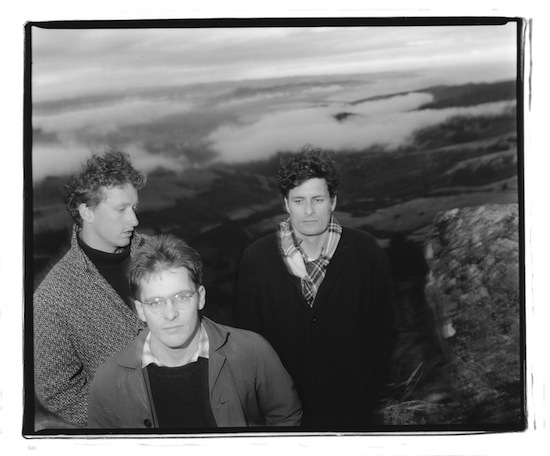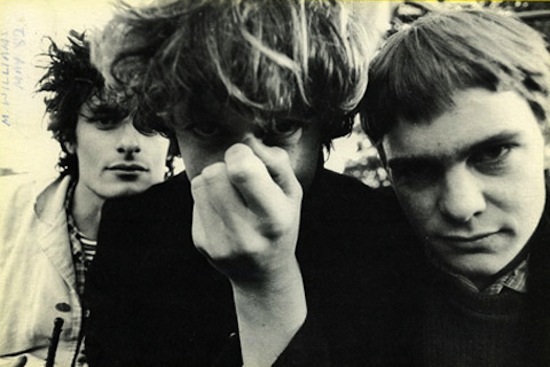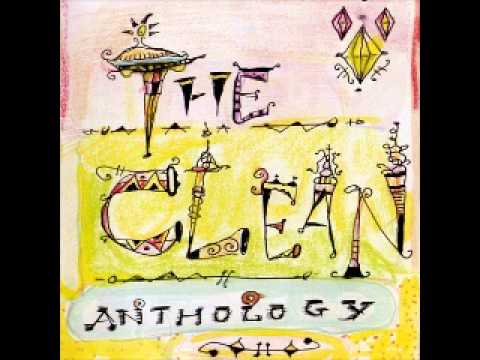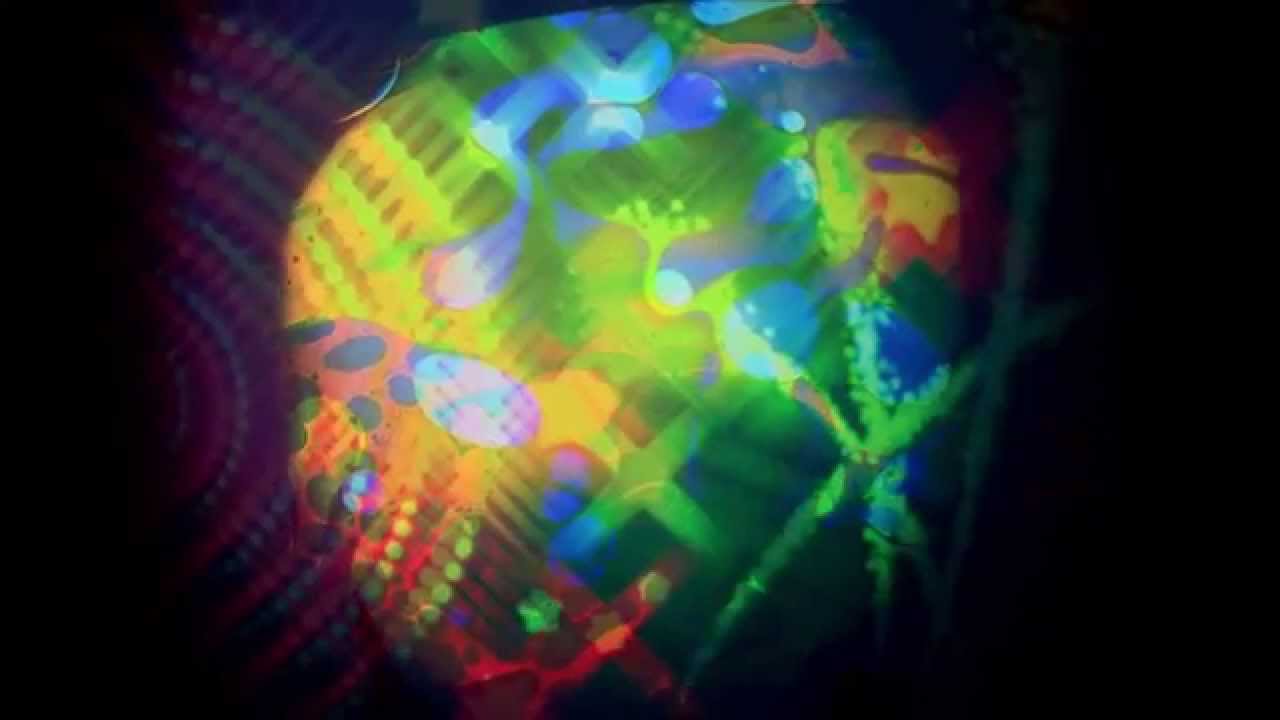Early proponents of lo-fi, basement dwelling, David Kilgour and The Clean have a lot to answer for. If it weren’t for The Clean, everything we love about this certain kind of off-kilter music; the jangly, disorderly pop songs, that are both primitive and accessible, would have a large, gaping hole in its back-story. Seminal may well be a word used much too loosely in music today, but The Clean’s discography, as evidenced in the comprehensive career-spanning Anthology compilation, is affirmation of their status as influential pillars of the indie-rock canon. Together with bands like The Chills, The Bats and Tall Dwarfs – bolstered by the equally prominent outpost Flying Nun Records – The Clean helped to create New Zealand’s now endemic and quietly revered "Dunedin Sound".
With an output spanning 30+ years under their belt, The Clean are still touring to this day but mainstay and driving force David Kilgour has had similar successes with his extra-curricular musical work. He has been relatively prolific since his first debut solo album, 1991’s Here Come The Cars. In light of the recent Anthology reissue, I spoke to the musician recently as he reflected on his time in The Clean, as well as on Dunedin’s current music scene and the process behind the upcoming release of his tenth studio album End Times Undone.
Hi David, how are you today?
David Kilgour: I’m well, thank you very much. Busy organising these tours – it’s the middle of winter down here.
For the past 20 years or so you’ve balanced The Clean with a successful solo career which, musically, has been quite disparate in comparison, particularly with your first solo album – 1991’s Here Come The Cars. Was it important for you to get away from The Clean’s sound and do songs that perhaps the band would never do?
DK: It was more like trying not to think about what I had done before and carry on really. I think all artists should be in a state of "becoming", and I’m as restless as anyone. Having said that, the production and arrangement on HCTC was a deliberate attempt to try and remove myself from the shadow of The Clean, as far as sound and performance goes.
What would you say is the main distinction between The Clean and David Kilgour And The Heavy Eights?
DK: The Clean was, roughly speaking, a three-way creative effort, and what we called "the reformed Clean" – post 1990 I guess – generally created new music out of jamming. With early Clean, we would bring parts of songs in then jam, co-write, self-write, whatever it took, and we would play together three times a week for about two years to write but also get better at playing our instruments. The Heavy Eights has primarily been driven by my creative urges, but over the last two or three LPs it has pretty much become a four-way creative push.
You have a new album out in August called End Times Undone, how would you say it differs and compares to 2011’s Left By Soft?
DK: End Times Undone sounds like an eclectic bunch of songs to me; Left By Soft – I like that LP, it’s sonically more cohesive perhaps. I guess it’s indicative of how Left By Soft was recorded in one burst as opposed to the long-winded process of End Times Undone.
It took you three years to finish the recording of End Times Undone, so one would assume that it was quite an arduous process, but in actual fact your approach to it was quite casual; can you explain why it took so long?
DK: With this LP we would get together once every four months or so and record. Sometimes I would have a song or two, other times almost nothing. We only got together when the time seemed right with End Times Undone, whereas before we would book specific times to work together. Nothing is planned outright; these days I don’t think I could get a fixed plan about recording, I just set up and play.
Have you always worked with your music that way? Do you find recording more sporadically and less methodically works better for you?
DK: I’m unsure what works best for me, which may not be a useful thing to know. Keeping it fresh sometimes involves having a long break because it can be quite exciting when you return to it. Each time we go to make new music I like to throw something in that’s a little different from past efforts; it may be the environment, the approach, the non approach etc, but at the end of the day, I do believe the more I think about the music the more the music starts to, ahem, stink.
Based on that, I get the sense that you are less of a perfectionist, and more about capturing the creative process as early as possible, is this a true analysis?
DK: I’m certainly anti cleaning too much via Pro Tools. I’m really tired of hearing perfect music, so tired, where’s the dirt? I know it’s there, but you know what I mean? Admittedly, I’ve been guilty of it in the past, but once music is ready it should be performance over perfection; feel first, the rest is secondary really.
The release of End Times Undone comes not long after the reissue of The Clean’s 2002 compilation Anthology. It includes all your early material which has become quite hard to find; have you ever thought about reissuing any of that, too?
DK: Yes, we do talk about that with Ben and Captured Tracks. At a guess, I’d say we will do some kind of vinyl reissue of the early 45s and EPs. There are also some outtakes etc, but not a lot. We’re even thinking of doing a very different mix of Boodle Boodle Boodle.
Records by The Clean often sell for hundreds, what are your feelings on this? I suppose it must be nice to know that your music is worth so much to people?
DK: You can still get them in New Zealand for a reasonable price, maybe. I understand record collecting, there are worse things to do than bring music and art into your house!
The Clean are a very significant band for many, as are most of the Flying Nun bands associated with the "Dunedin sound" you helped to create. Did you ever expect the sound to become so endemic, with such a lasting influence on bands today?
DK: I had no idea it would spread around the world, I mean, in my wildest dreams perhaps. You have to remember we weren’t walking around saying, "I wonder how far the Dunedin sound will spread?" – far from it; we were three ambitious young men towing our own boat, and it was very competitive… although we always tried to support our friends like The Verlaines, The Chills, Tall Dwarfs etc. and the help went both ways. No one talked about any Dunedin sound or Flying Nun bands in 1980, because it didn’t really exist as a ‘scene’ as such.
Speaking of bands today, are you versed in New Zealand’s – and in particular Dunedin’s – music scene? What’s it like there at the moment? Do you have any recommendations for our readers?
DK: Some very biased picks here but locally – Bad Sav, Shifting Sands, Kane Strang, The Salad Boys, Ghostwave, the Phoenix Foundation, Doprah and Voom are all great bands. To be honest, I’m out of touch with anything brand new here in New Zealand; I do keep in touch with new Dunedin music scene though… just. It isn’t hard when a quarter of them are your friends, and sometimes with new young bands emerging it’s looking like they’re our generation’s kids in some ways, which I find interesting, although I have no great insights to report as yet. I heard great things about an Alphabet Head gig the other day and Martin Phillipps played me a new track from the forthcoming Chills LP, it was really good- it’s a long, trippy track. Peter Gutteridge continues to perform and write, he’s still got it.

Dunedin’s music scene around The Clean’s epoch was obviously vibrant, but how much in tune were you with what was going on in the UK around that time?
DK: Very much so, we read air mail music press from the UK, especially the glory years of NME – Kent, Parsons, Burchill, and also a lot of press in the States; even the New York Rocker got to us down here in the late 70s, as well as the likes of CREEM, Rolling Stone and Zig Zag. We could get our hands on new releases a month or so after they came out in the UK, Sex Pistols 45s and the like. We also had a very inquisitive TV reporter (Dylan Tate) who actually interviewed the Sex Pistols outside Buckingham Palace back in the day, an odd little connection there. Dylan also went on to do what has now become quite an important interview with Bob Marley. I guess Hamish and I were vinyl collectors before music came along; New Zealanders are naturally inquisitive because we are intrinsically culturally aware, we have so much to learn and open our eyes to about being so isolated. We are supposedly some of the most travelled on the planet..
What are you currently listening to and enjoying?
DK: Mazzy Star’s latest LP Seasons Of Your Day, The Rolling Stones’ Goats Head Soup, Davy Graham, Angel Olsen, Marissa Nadler, Skip Spence, CSN, Endless Boogie, Kurt Vile, Johnny Thunders And The Heartbreakers, Chopin’s piano sonatas, Beethoven’s piano sonatas, Steppenwolf, Alan Wilson, Lambchop’s Is A Woman, The Carpenters, First Aid Kit, White Denim, Bread, Miles Davis, Everly Brothers, Faun Fables, Coloured Balls. Well, that’s this weeks playlist!
You‘re also a painter and create the artwork for your albums; can you tell us more about your background in art? is this very much a part time thing with music being the main focus of your creativity?
DK: There’s nothing special about my relationship with it really, just an extension of doodling; a hobby, a pass time and sometimes perhaps a healthy distraction from music.
The Chills are currently touring the UK, playing their first European shows since 1996. Can we expect the same happening any time soon, for either The Clean or your solo work?
DK: No plans, but there’s always the odd nibble from the old land, so who knows? The interest in the music has consistently come from the USA, and I think the English press perhaps still have a post colonial attitude, whether intentional or not. But I mean, why would you take a little country at the bottom of the world seriously anyway, just because you made some hobbits and wrote a good song 30 years ago? I like that we know what it’s like to be small, far away and somehow oddly exotic; celts in the South Pacific mingling with Pacific culture etc.
My ideal line-up would consist of The Clean, The Chills, The Bats, The Verlaines, Tall Dwarfs, Sneaky Feelings – basically a Flying Nun festival, would you ever be up for doing something like that?
DK: Never say never, although nostalgia can horrify one at times, and here I go on another US tour with The Clean! That’s the challenge I guess, like, "What have we got this time?"
Is the possibility of there ever being a new Clean album completely ruled out?
DK: No plans, but funnily enough this jaunt coming up in the US feels like some kind of last hurrah-style adventure, albeit on the road, but I’ve said that before. I haven’t felt like making any new Clean music deliberately in a studio for a while. Perhaps we’ll jam on LSD in a paddock at night around a fire, but no more than that. You would have to talk to Hamish and Robert about that too; I’m not sure where they’re at in relation to making new Clean music. This could be the beginning of the end.
What does the future hold for David Kilgour and the Heavy Eights?
DK: Make shit and carry on. I would like to see how far we can go, but I would also like to know when to stop. I think there are times, perhaps many times, when you should just stop, whatever that may mean to you; a natural occurrence, I guess, you have to look for signs along the way. We are mixing a new LP in which we back up a New Zealand poet called Sam Hunt; it’s spoken word and music, that’s out later this year, I think, but perhaps it’s a New Zealand release only. We are all pretty happy with it. I still think about making that instrumental LP one day, I get a bit tired of hearing from David Kilgour, though!




